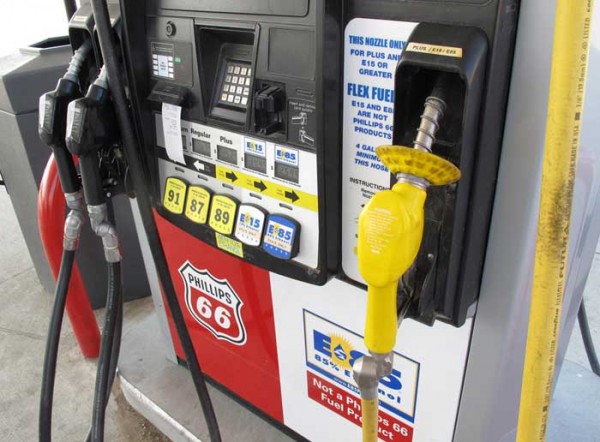 An alleged agreement between ethanol industry interests and one of President Trump’s deregulation advisers concerning a pending executive order addressing parts of the federal Renewable Fuels Standard (RFS) would mandate 15% ethanol-gasoline transportation fuel blends year-round instead of current rules that relax the mandate in the summer months.
An alleged agreement between ethanol industry interests and one of President Trump’s deregulation advisers concerning a pending executive order addressing parts of the federal Renewable Fuels Standard (RFS) would mandate 15% ethanol-gasoline transportation fuel blends year-round instead of current rules that relax the mandate in the summer months.
In a move that reflects the new administration, major ethanol interest group the Renewable Fuels Association (RFA) reversed its position on a Trump administration shift in ethanol implementation in return for having the EPA relax the E15 summer rules.
The action began in early March, when the political press published a claim the Trump administration would issue an executive order altering the RFS by shifting the “point of obligation” from refiners to wholesalers and distributors at the blending level. Refining companies that don’t have blending facilities must buy renewable fuel credits to meet RFS requirements.
The shift in responsibility had been proposed in a technical policy platform in September during the campaign, and ethanol interests immediately objected since it would require more companies to participate through the supply chain instead of at the refinery level, possibly slowing the spread of more ethanol usage.
Just weeks before reversing its position, the RFA had filed a comment with EPA arguing against the shift. In explaining the group’s change, RFA President and CEO Rob Dineen said he had been informed the executive order on the shift was “non-negotiable” with the Trump administration, and he chose to support the move if officials could ensure that EPA relaxed the E15 summer rules.
Despite opposing the shift in principle, Dineen said he agreed to the trade because he was told the order was inevitable, and “Our top priority this year is to ensure consumers have year-round access to E15.”
According to news reports, refinery operator Valero, RFA and Trump deregulation adviser Carl Icahn presented the agreement to Trump administration officials.
The agreement was opposed by three camps: Many ethanol producers and other associations said RFA’s reversal was selling out to member company Valero while weakening the RFS mission; petroleum interests say the deal needlessly complicates their plan to make even bigger changes or repeal the RFS outright; and good government advocates claimed Icahn is simply looking after his own interests since he’s majority owner in a refining company that will save $200 million annually by shifting the point of obligation to wholesalers and distributors.
